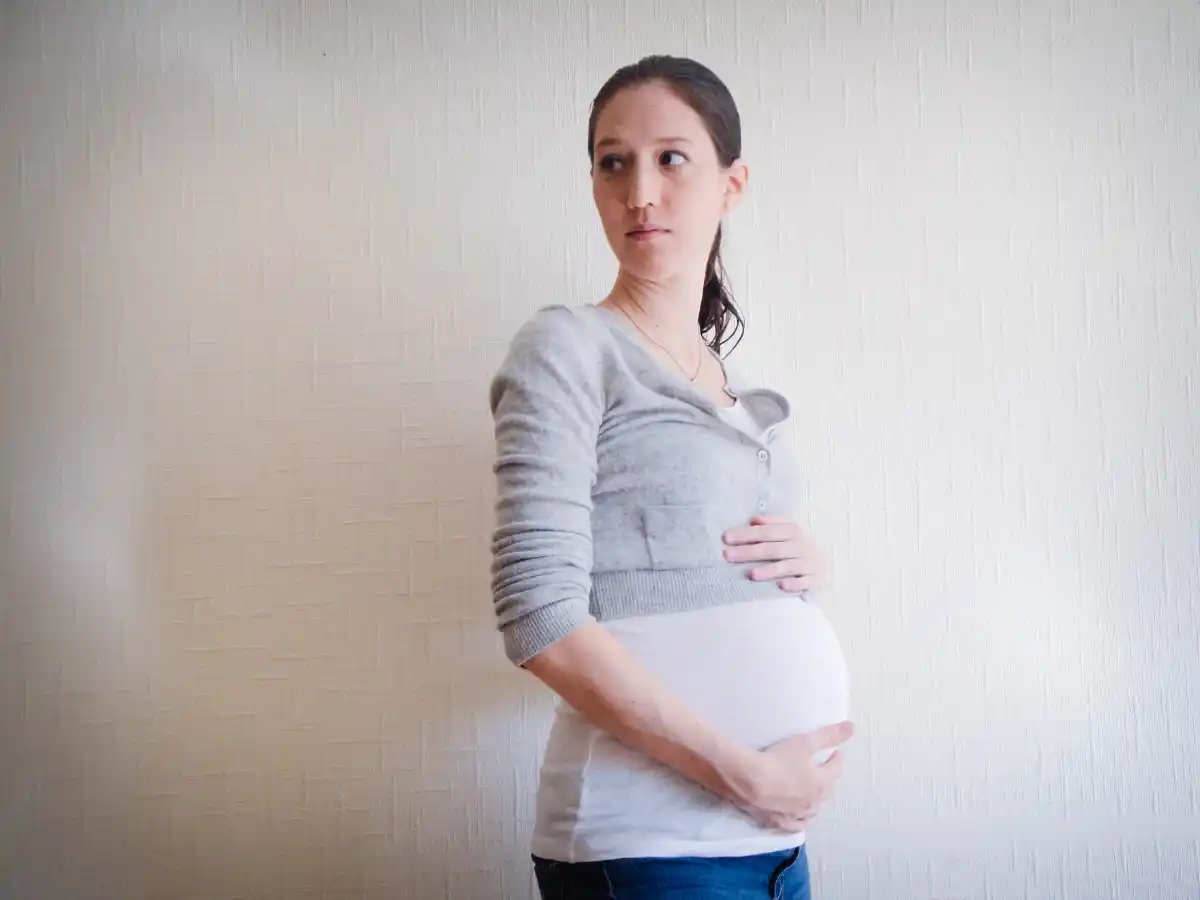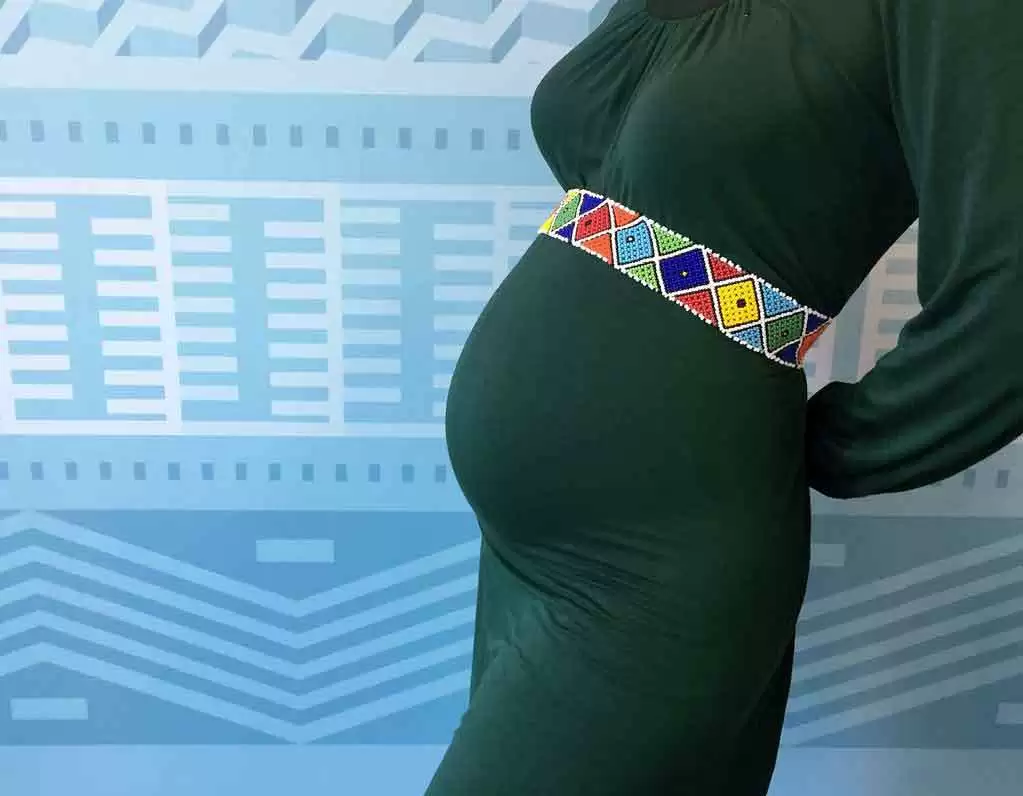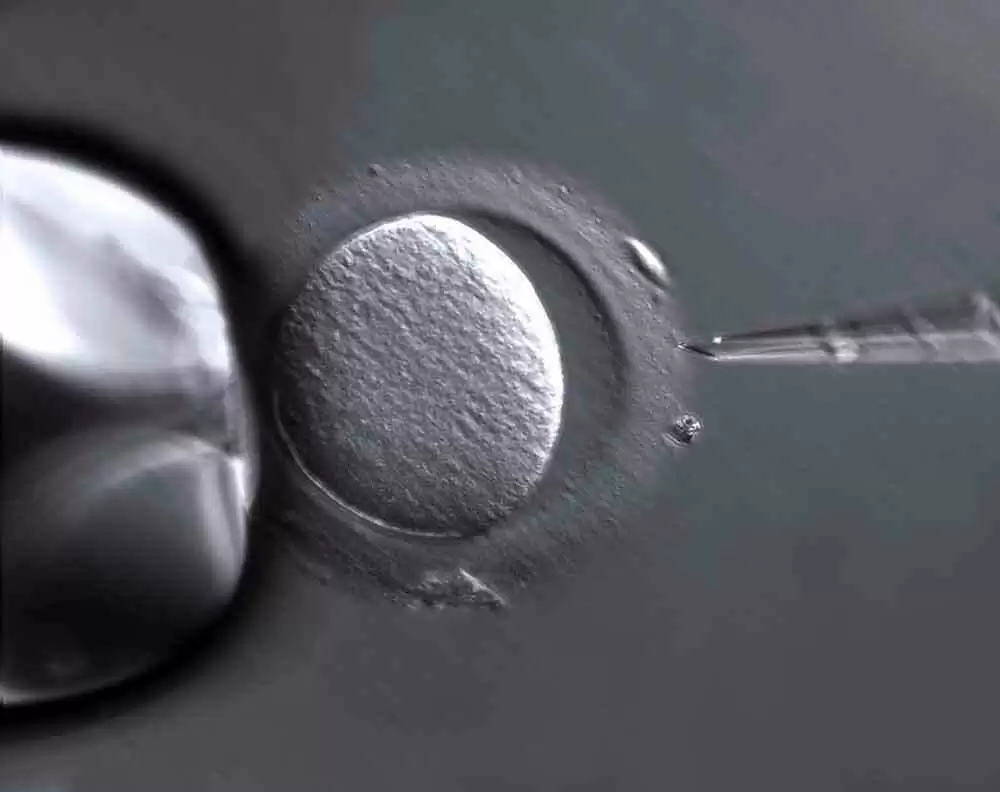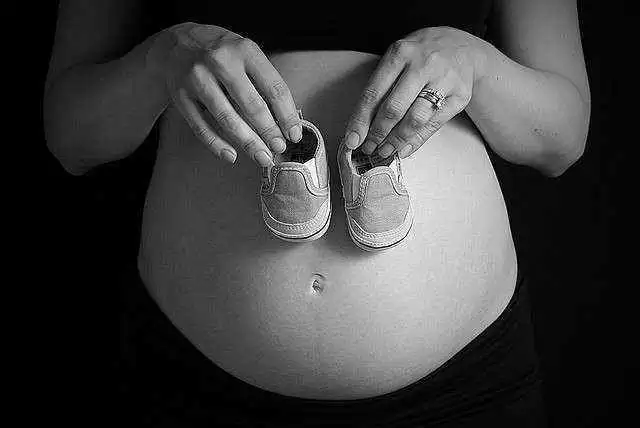-
Welcome to Celiac.com!
You have found your celiac tribe! Join us and ask questions in our forum, share your story, and connect with others.
-
Celiac.com Sponsor (A1):
Celiac.com Sponsor (A1-M):
-
Get Celiac.com Updates:Support Celiac.com!
Search the Community
Showing results for tags 'pregnancy'.
-
Celiac.com 04/01/2024 - Recent research has shed light on a concerning correlation between celiac disease and various reproductive disorders in women, emphasizing the importance of awareness and proactive healthcare measures for individuals living with this autoimmune condition. According to a study presented at the 2023 annual meeting of the American College of Gastroenterology by lead researcher Rama Nanah, MD, patients with celiac disease face significantly elevated risks for several female reproductive disorders compared to those without the condition. The study, drawing from the comprehensive TriNetX database, revealed that women with celiac disease have a two times higher risk for endometriosis, three times higher risk for polycystic ovary syndrome (PCOS), and six times higher risk for ovarian dysfunction. The association between celiac disease and female reproductive disorders has been noted in previous studies, but the latest findings add new dimensions to our understanding. Notably, the study uncovered increased rates of PCOS and endometriosis among women with celiac disease, highlighting the urgent need for further investigation into these connections. A Range of Reproductive Health Abnormalities Associated with Celiac Disease The retrospective analysis, which included over 9,000 women with celiac disease and more than 25 million healthy controls, revealed a range of reproductive health abnormalities associated with celiac disease across different age groups. These include menstrual irregularities, delayed menarche, infertility, recurrent pregnancy loss, and pain associated with menstruation. Despite the compelling data, the exact mechanism underlying the association between celiac disease and reproductive disorders remains unclear. Dr. Nanah emphasized that the study did not establish causality, nor did it provide insights into whether adherence to a gluten-free diet could mitigate reproductive risks. While the study underscores the importance of considering undiagnosed celiac disease in women with gynecologic disorders, it also highlights the need for prospective studies to validate these findings and explore potential screening and risk reduction strategies. Benjamin Lebwohl, MD, MS, director of clinical research at the Celiac Disease Center at Columbia University, stressed the importance of future research to further elucidate these associations and inform evidence-based healthcare practices. For individuals living with celiac disease, the study underscores the importance of comprehensive healthcare management that includes regular screenings and discussions about reproductive health. By raising awareness and advancing research in this area, healthcare professionals can better support the unique needs of women with celiac disease, ultimately improving their overall quality of life and well-being. Read more at Gastroendonews.com
-
- celiac disease
- female
-
(and 5 more)
Tagged with:
-
Celiac.com 06/19/2023 - A recent study conducted by Claire Jansson-Knodell, MD, from the department of gastroenterology, hepatology, and nutrition at the Cleveland Clinic, has revealed that women with celiac disease face an increased risk of complications during pregnancy and delivery. The study aimed to examine pregnancy outcomes by analyzing a large database of maternal, obstetrical, and neonatal outcomes in mothers with celiac disease. Here are some highlights. Study Looked at Data from Pregnant Women Who Delivered Between 2015 and 2019 The study utilized the National Inpatient Sample, which included data from pregnant women who delivered between 2015 and 2019. Out of over 12 million births, the researchers identified 10,555 cases involving women with celiac disease. Pregnant Women with Celiac Disease at Higher Risk of Pregnancy and Delivery Complications According to the findings presented at Digestive Disease Week, pregnant women with celiac disease exhibited a higher risk of experiencing complications related to pregnancy and delivery compared to women without celiac disease. Additionally, they had longer hospital stays, although the rate of maternal mortality did not significantly differ between the two groups. One significant finding was that women with celiac disease had lower odds of having a full-term and uncomplicated delivery. The study also identified a heightened risk of hypertensive diseases of pregnancy, as well as placental diseases such as abruption and placenta previa, among women with celiac disease. Furthermore, women with celiac disease more frequently required assistance during delivery, such as the use of vacuum or forceps, and were at a greater risk of third- or fourth-degree tears. However, the study did not observe higher rates of C-sections among women with celiac disease. The study also revealed that babies born to women with celiac disease were more likely to be small for their gestational age and experience fetal distress. Conclusions Based on these findings, Jansson-Knodell suggests that healthcare providers should consider these risks when caring for patients with celiac disease who are pregnant or planning to become pregnant. Additional attention and care should be provided to address the potential complications associated with pregnancy and delivery in this population. In summary, this study highlights the increased risk of pregnancy and delivery complications faced by women with celiac disease. The findings underscore the importance of comprehensive care and management for pregnant women with celiac disease to mitigate these risks and ensure optimal outcomes for both mothers and babies. Read more at Helio.
- 16 comments
-
- celiac disease
- complication
-
(and 6 more)
Tagged with:
-
I have been told by my nutritionist that I most likely have Celiac, after I cut out all gluten a month ago on a whim to try to lose weight. I have been lactose intolerant since I can remember, always fatigued, anemic, bloated and was diagnosed with IBS as a teen. Well after that conversation everything started clicking. I've also had multiple miscarriages with no determinable reason (4 pregnancies and 1 living child.) I just found out today that I am pregnant. I am trying not to panic and am determined to stick to the Celiac lifestyle to keep myself and my baby healthy. The problem is that I haven't been officially tested yet. I don't know what this means for me or my pregnancy yet. I'm in unknown territory and more than a little worried.
- 7 replies
-
- pre diagnosis
- pregnancy
-
(and 1 more)
Tagged with:
-
Celiac.com 02/07/2020 - Gluten sensitivity during pregnancy can profoundly impact fetal brain development. Gluten is a protein found in wheat, rye, and barley. Many people who have a gluten intolerance may also have other food sensitivities to common antigens like corn, soy, dairy, and sugar. Many times, without a histamine response like hives, people can be blissfully unaware of their food sensitivity. Studies have shown gluten sensitivity destroys brain and nervous tissue more than any other tissue in the body, and is linked to a number of other neurological disorders. (Read my blog Gluten Intolerance Testing for more information about this.) Eating Gluten During Pregnancy May Potentially Put Your Child At Risk Beginning before birth, the left and right hemispheres of the brain develop in stages according to a very sophisticated schedule. Each hemisphere depends on the other to meet its developmental goals within a precise window of time. While in-utero and in early childhood, viruses, infection, and inflammation (such as that from a gluten sensitivity), can throw a wrench in this intricate timing and hinder proper brain development. This sets the stage for a wide range of neurological disorders, attention-deficit/hyperactivity disorder (ADHD), autism, Tourette's syndrome, depression, anxiety, and other childhood brain disorders. Childhood mental disorders now affect one in five children, and the rates are increasing. Wheat Can impact Brain Function There are at least 13 different ways I know of that a gluten sensitivity can impact the brain. Let's look at a couple of the big ones. One mechanism is that there can be elevated antibodies to wheat and the cerebellum and GAD-65. Your cerebellum controls your muscle movements. After years of your body attacking this brain tissue, the brain may shrink. People with GAD-65 antibodies indicate a high trigger for anxiety and ADHD. Another common mechanism is hypoperfusion, a lack of blood flow going to the brain. 73% of people with a sensitivity to wheat have hypoperfusion. Just like your cells need hydration, your brain needs to be saturated. So many people go undiagnosed with a gluten-related disorder for years. Imagine what we are doing to our children (and ourselves) when we eat that bowl of cereal or toast before school or work. We are not able to function optimally. This is why "brain fog" is the most common symptom for people with a sensitivity to wheat. In 2006, a study looked at 132 people with symptoms of ADHD who had a wheat sensitivity. When they put them on a gluten-free diet, the researchers reported markedly significant improvement in all behavioral markers within six months. Gluten sensitivity may also more than double your child's risk of developing schizophrenia later in life. The first study to reveal food sensitivity was linked to a greater risk for psychosis, autism and other brain disorders in the child. Researchers looked at blood samples of nearly 800 individuals born in Sweden between 1975 and 1985. What did they find? People with schizophrenia had high levels of gluten antibodies in their blood at birth - meaning a gluten sensitivity was passed from mother to child. You Might Have an Undiagnosed Gluten Sensitivity Awareness is growing as rates of celiac disease, an intestinal autoimmune disease caused by gluten, have quadrupled in the last 50 years. The numbers could be much higher. In fact, it's estimated that 95 percent of those with celiac disease go undiagnosed. Researchers also estimate the numbers of people with gluten sensitivity — a non-celiac inflammatory reaction to gluten — range from 10 to 30 percent of the population. During Pregnancy, Mom's Gluten Sensitivity May Affect Her Baby's Brain If you look at the current explosion in inflammatory disorders today, the rise of these brain-based disorders is less of a mystery. Immune-activated mothers are giving birth to immune-activated babies. If you can, don't wait until pregnancy to look into food sensitivities. Every woman needs to consider a screen for gluten sensitivity. Look for anti-gliadin antibodies and, if that test comes back positive, go on a gluten-free diet. We don't know at which point during pregnancy a mother's gluten sensitivity impacts the fetal brain, but we do know the baby's brain and nervous system begin developing in the first trimester. Although the association between a mother's gluten sensitivity and the baby's increased risk of psychosis as an adult is not yet fully understood, it makes sense to err on the side of caution. "During My Pregnancy, I Didn't Get Nauseous. I Must Not Have Gluten Sensitivity, Right?" Not Necessarily. A lack of gut symptoms doesn't mean you're in the clear. Everyone reacts differently to gluten sensitivity. One person can have chronic skin rashes, another may have joint pain, and a third brain fog. In fact, research suggests the majority of people with gluten sensitivity have no gastrointestinal symptoms whatsoever. For every person with gut symptoms caused by gluten, there will be eight who have none, despite there being a gluten sensitivity present. An undiagnosed gluten sensitivity during pregnancy is in no way a guarantee that your child will develop schizophrenia or other brain disorders either. However, when an expectant mother produces autoimmune antibodies to brain tissue, 86% of their children are on the autism spectrum. If mom has an autoimmune mechanism going on inside her body, it can affect the baby. One of the most common food sensitivities associated with neurologic problems is wheat. Only a fraction of people who have a problem with wheat have celiac. Many more have gluten sensitivity. Many women —and men—may be better off on a gluten-free diet even though they do not have celiac disease. How do you reduce antibodies? First, screen for antibodies against the brain. Two great tools for screening are the Cyrex Array #5 and the Neural Zoomer. If you are producing antibodies, you need to eliminate the trigger(s). The goal is to stop the autoimmune cascade, particularly during pregnancy when the fetus is developing its entire body and establishing its own immune system that will set him or her up for life. Bacterial Colonies Change in the Vaginal Tract During Pregnancy In the last trimester of pregnancy, the bacterial colonies in the vaginal tract change completely to the point that there's a very high count of prevotella [bacteria]. Most of the time, there are practically no prevotella that are measurable in the vaginal tract at all. The change in the last trimester occurs because the prevotella is the substance that coats the baby as it comes down the birth canal. Prevotella migrates through the baby's nasal cavity and its mouth and goes down to turn on the genes in the gastrointestinal (GI) tract. These genes say, "Okay, this is the mammal that is going to start feeding you. Here are the codes for the protein that's about to come to you for food." The baby's digestive tract then starts turning on the digestive enzyme production capability for the specific proteins that are encoded in the prevotella bacteria. My Personal Story When we were first married, my ex-wife and I, despite all efforts, could not get pregnant. I was an intern at the time, and I called the seven most famous doctors I'd ever heard of, holistic doctors, and asked, "What can we do?" Because I was an intern, they asked, "Do you know this?" "Do you know that?" I'd say, "No." And they would respond: "Learn." So I put a program together, and we were pregnant in six weeks. A lot of people know that this began my study of gluten and the many effects it has on the body. Since then, I've helped hundreds of couples with infertility, recurrent miscarriages, and hormonal imbalances. There's not much in medicine that's all or every, but this is an every. What we learned early was that every person with hormone-related symptoms, whether it was infertility, miscarriages, estrogen dominance, testosterone deficiency, all of them, when tested properly, had a sensitivity to foods that they were eating — foods that they did not know were making them sick. When you eat a food that you're sensitive to, it triggers inflammation in the body. The immune system responds to try to protect you from something it considers an invader, and it creates an inflammatory reaction. I have said this so many times over the years: "Ms. Patient. If you pull at a chain, the chain always breaks at the weakest link. So, the first thing to do is to learn what's pulling on the chain." We found out something amazing... Food Sensitivities Were a Component Every Time Often there were more, but it was an important component. I found that the most frequent food sensitivity was wheat. So I started reading the literature on wheat way back in 1980. Our daughter was also born in 1980, and I started talking about it shortly thereafter because the studies were blowing me away. By 2004, I was lecturing professionally onstage about wheat sensitivities with or without celiac disease. That progressed and progressed until 2008, when a nutritional company called Metagenics sponsored me to go around the world. I went to 26 different cities and gave full eight-hour presentations on wheat sensitivity. The presentation dropped everybody's jaw. No one had ever seen these studies about different types of spondyloarthropathy, rheumatoid arthritis, psoriasis, multiple sclerosis, attention deficit disorder, autism, or Alzheimer's and how it would benefit some of those people just by getting off of wheat. They started to get better, sometimes dramatically, but often to some degree. In 2009, I did the same 26 cities for a full eight-hour presentation on the development of autoimmunity. What triggers the development of autoimmunity? And what do you do to address autoimmunity? It was infertility, successfully addressed by looking at food sensitivities and a couple of other things that led me into learning about wheat sensitivity; gluten sensitivity; and the trigger of intestinal permeability. For example, in the United States, 78% of the prebiotic diet is wheat. If you take wheat out of your diet, which is a very important thing, what you're also taking out is the major source of your prebiotics. And prebiotics feed probiotics, which are the good bacteria in your gut. If you take wheat out of your diet without the right education or mentorship, you lose the main prebiotic source, and, as a result, probiotics in your gut (the good bacteria that need that food) start starving. Some probiotics begin to die off, and the bad guys in your gut that have been kept in check to some degree by those probiotics now become opportunistic and rear their ugly heads. This is why it is so helpful to find a certified gluten-free practitioner or nutritionist when you are on a gluten-free diet: This is especially important before and during pregnancy. You want to prepare your body to be free of antibodies prior to conception, and you want the proper nutrition to support both you and a developing baby.
- 3 comments
-
- celiac disease
- food sensitivities
- (and 5 more)
-
Celiac.com 04/27/2015 - We know that women with infertility have higher rates of celiac disease than women who are not infertile. There's been some evidence to suggest that celiac disease might have impact women's reproductive health. However, the quest for more solid answers continues. A team of researchers recently set out to assess fertility and outcomes of pregnancy among women with celiac disease. The research team included Stephanie M. Moleski, Christina C. Lindenmeyer, J. Jon Veloski, Robin S. Miller, Cynthia L. Miller, David Kastenberg, and Anthony J. DiMarino. The team crafted a retrospective cohort study in which they analyzed information gathered from patients at a tertiary care celiac center, along with information gathered from members of two national celiac disease awareness organizations. A group of women without celiac disease served as control subjects. Both groups answered an anonymous online survey of 43 questions about menstrual history, fertility, and pregnancy outcomes. The group included 329 women with small bowel biopsy-confirmed celiac disease and 641 control subjects. Of the 970 women included in the study, 733 (75.6%) reported that they had been pregnant at some point. In terms of pregnancy, there was no significant difference between women with celiac disease (n=245/329, 74.5%) and controls (488/641, 76.1%; P=0.57). However, fewer women with celiac disease than controls (79.6% vs. 84.8%) reported giving birth following 1 or more pregnancies (P=0.03). Women with celiac disease had higher rates of spontaneous abortion than did control subjects (50.6% vs. 40.6%; P=0.01). Women with celiac disease also had higher rates of premature delivery, at 23.6% compared to 15.9% among controls (P=0.02). The average age at menarche was a bit higher in the celiac disease group, at 12.7 years, than in the control group, which came in at 12.4 years (P=0.01). This retrospective cohort analysis examining reproductive features of women with celiac disease, found that celiac disease was associated with significant increases in spontaneous abortion, premature delivery, and later age of menarche. Source: Ann Gastroenterol 2015; 28 (2): 236-240
- 6 comments
-
- celiac
- celiac disease
-
(and 5 more)
Tagged with:
-
Celiac.com 09/21/2020 - Many people of reproductive age have celiac disease, but researchers really don't know very much about the impact of celiac disease on pregnancy and fetal development. The British Society of Gastroenterology currently recommends celiac blood testing for patients with chronic diarrhea, but celiac disease may be under-diagnosed in women without classic symptoms. A team of researchers recently wrote a letter to the editors at Gut, about their recent study on the impact of celiac disease on pregnancy and fetal development. To study the connection between celiac disease and the risk of birth defects in pregnant women, the researchers first used discharge summaries from the Maintenance and Use of Data for the Study of Hospital Clientele database to establish their study group, The team then analyzed a group of live births between 1989 and 2016 in Quebec, Canada that included 2,184,888 infants, including 125,081 with birth defects and 2,238 whose mothers had celiac disease. They used diagnostic codes to spot women with celiac disease, and infants with various kinds of birth defects and determined whether celiac disease was present during prenatal follow-up or were hospitalized for it after their pregnancy. The team used log-binomial regression models with robust SE to estimate associations between celiac disease and birth defects, as adjusted for maternal characteristics and found that celiac disease was associated with 1.58 times the risk of heart defects (95% CI 1.12 to 2.22) and 1.56 times the risk of urinary defects (95%CI 1.06 to 2.32) compared to those without it, and the risk of heart defects was greater in women who had two or more celiac-related hospitalizations (risk ratio (RR) 3.06, 95%CI 1.81 to 5.15), and in those whose celiac disease was diagnosed after their delivery (RR 1.94, 95%CI 1.31 to 2.88). The association with heart defects was also stronger before the year 2000 (RR 2.29, 95%CI 1.41 to 3.72), and the association with heart defects was elevated in those whose celiac disease that was diagnosed after delivery, which includes undetected cases that may have been present during pregnancy. There was no association with other types of birth defects. The results indicate that women who wish to get pregnant should consider screening for celiac disease beforehand, and if they test positive should go on a gluten-free diet for some time to ensure that they do not have any vitamin and mineral deficiencies caused by damaged villi. Additionally, doctors may want to more closely monitor their babies for heart and urinary birth defects. Read the full results of the study at Gut.bmj.com The study team included Nathalie Auger, Amelie Therrien, Marianne Bilodeau-Bertrand, Chantal Nelson, Laura Arbour. They are variously affiliated with the Department of Social and Preventive Medicine, University of Montreal Hospital Research Centre, Montreal, Quebec, Canada; the Celiac Center, Beth Israel Deaconess Medical Center, Boston, Massachusetts, USA; the Bureau d'information et d'études en santé des populations, Institut national de santé publique du Québec, Montreal, Quebec, Canada; the Maternal and Infant Health Surveillance Section, Public Health Agency of Canada, Ottawa, Ontario, Canada; and the Department of Medical Genetics, The University of British Columbia, Vancouver, British Columbia, Canada.
-
- celiac disease
- fetal development
-
(and 3 more)
Tagged with:
-
I saw my primary Dr a year ago about some GI symptoms I was having. He did a celiac panel on me. I called his office for the results but never received them and he's the type of Dr that says no news is good news so I went about my life figuring the test was negative. I had to go see him for something unrelated last week and he asked if I was following a gluten free diet, confused I said no. This is when he tells me I tested positive for the antibody last year. Something he neglected to inform me or get in contact to set up further testing. His response to the whole situation was don't worry I'll just test you again while you're here. I'm not sure what that was supposed to accomplish maybe just to get me to stop berating him. He tested me again and this time the antibody came back negative. The only difference is I'm currently 34 weeks pregnant. I started gluten free once he told me the first test was positive and will pursue additional testing after I have the baby with a different Dr. My question is could a positive test suddenly become a negative test I was eating gluten before both test or could the pregnancy have affected the results somehow?
-
Celiac.com 11/05/2019 - After failing to conceive naturally over several years, the woman, Helen Tzouganatos, turned to IVF doctor Professor Mark Bowman. Tzouganatos says she and her husband had "tried every fertility trick in the book – expensive ovulation kits, herbal remedies, acupuncture, eating more of this and less of that, taking a holiday, taking another holiday – and nothing worked." During her intake, Tzouganatos told Dr. Bowman that she had no "serious" health issues just unexplained anemia since childhood, abdominal cramps and lactose intolerance. To his credit, Dr. Bowman immediately suspected she was a celiac. He ordered a celiac blood screen. When the results came back positive, everything became clear. "You’re a celiac and that is why you’re infertile," Dr. Bowman told her. "You need to cut gluten immediately.” Tzouganatos began a gluten-free diet immediately, and, after six rounds of IVF treatment, she conceived her son Vasili, followed by a daughter, Sofia, conceived on the second frozen embryo transfer 17 months later. Statistical data indicate that one in 70 Australians have celiac disease yet 80 per cent are undiagnosed. Tzouganatos is lucky that her celiac disease was discovered quickly by her IVF doctor, after sneaking under the radar for so long. Any women experiencing unexplained infertility, especially in conjunction with other celiac-related symptoms should be screened to rule out celiac disease. Quick adoption of a gluten-free diet can often lead to full healing and normal, or greatly improved fertility. Read more at SMH.com.au
- 1 comment
-
- celiac
- celiac disease
-
(and 5 more)
Tagged with:
-
Celiac.com 11/05/2012 - Over the last 40 years, studies have shown higher rates of menstrual abnormalities and pregnancy complications among women with celiac disease. However, the data from these studies have been inconsistent, and inconclusive regarding the actual effects of celiac disease on female fertility. To get a better picture of the relationship between celiac disease and female fertility and pregnancy, researchers recently conducted a more comprehensive study. The research team was led by Stephanie M. Moleski, MD, of Thomas Jefferson University Hospitals in Philadelphia. Dr. Moleski presented an abstract of the study data at the American College of Gastroenterology Annual Meeting 2012. In the abstract, she points out that women with biopsy-proven celiac disease had significantly higher rates of fertility and pregnancy complications and gave birth to less children than those without the disease. Because it is an abstract, the study data and conclusions should be regarded as preliminary until they appear in a peer-reviewed journal, where they can be given a fuller context and be more widely scrutinized. For their study, Dr. Moleski and her colleagues recruited patients treated for celiac disease at Thomas Jefferson University Hospitals, as well as members of the National Foundation for Celiac Awareness and the Gluten Intolerance Group, to respond in an anonymous Internet-based survey about fertility and pregnancy. Women without celiac disease also completed the survey and served as a control group. The survey included questions about celiac diagnosis and history, menstrual history, fertility, spontaneous abortions, and pregnancy outcomes. Approximately 1,000 women who completed the survey. Of those, 473 had physician-diagnosed celiac disease, while 298 women had the been confirmed for celiac via small-bowel biopsy. The researchers used the group with biopsy-proven disease to compare against 560 women without celiac disease. The data showed that 41.2% of women with celiac disease had increased difficulty conceiving compared with 36.5% of control subjects (P=0.03). Women with celiac disease also had more consultations with fertility specialists and higher rates of spontaneous abortion, preterm delivery, and cesarean section, compared with control subjects. Additionally, women with celiac disease were shown to have a shorter duration of fertility, to have a later onset of menarche and be younger when they experienced menopause, said Dr. Moleski. The data also revealed important differences between women with and without celiac disease. In all, 22.4% of women with celiac disease had consulted with fertility specialists, compared with 19% of those without (P=0.04). Also, 43.3% of celiacs had a history of spontaneous abortion, compared with 36.6% of non-celiacs (P=0.02). Compared with the control group of non-celiacs, women with celiac disease also had higher rates of cesarean delivery, 26.4% versus 23.8% of non-celiac women. Lastly, rates of preterm delivery were 23.2% for celiac women, and 14% for those without celiac disease (P=0.007), while the group with celiac disease was was also slightly older at the onset of their first period (12.7 versus 12.4 years, P=0.01). Among women reporting a history of spontaneous abortion, more than 80% of miscarriages occurred prior to diagnosis of celiac disease, said Dr. Moleski. She concluded that the retrospective analysis done by her team shows a clear relationship between celiac disease, fertility, and pregnancy outcomes, and suggests that the results demonstrate "a need for increased awareness of this association among patients and physicians." Sources: Medpagetoday.com American College of Gastroenterology, 2012; Moleski SM, et al "Infertility and pregnancy outcomes in celiac disease" ACG 2012; Abstract 15.
- 1 comment
-
- celiac
- celiac disease
- (and 6 more)
-
Celiac.com 06/24/2019 - A team of researchers recently set out to assess whether maternal diet during pregnancy plays any role in the later development of celiac disease in their children. Among other things, they found that moms who eat a high-fiber diet during pregnancy could reduce the chances of their children getting celiac disease later on, according to a new study, which is one of the first to investigate the link between fiber intake during pregnancy and children's risk of celiac disease. In the study, a team of researchers analyzed information from more than 88,000 Norwegian children and their mothers, who gave birth between 1999 and 2009. The research team included Dr. Ketil Størdal, a research professor at the Norwegian Institute of Public Health and a pediatric gastroenterologist at Østfold Hospital Trust in Norway, and other colleagues. The mothers answered questions about their fiber and gluten intake in their 22nd week of pregnancy, and the researchers tracked the children for about 11 years to see if any developed celiac disease. Kids of High Fiber Moms Have Lower Celiac Risk The researchers found that children born to mothers who ate the most fiber (over 45 grams per day) were 34% less like to develop celiac disease, compared with mothers who ate less than 19 grams of fiber per day. Mom's Fiber Intake May Influence Gut Bacteria in Kids It's known that fiber affects gut bacteria, aka, the gut "microbiome." Indeed, some studies have found that gut bacteria, aka, the gut "microbiome" is different in people with celiac disease than in those without it. The researchers think that the fiber levels of the mom might influence her child's gut flora, which could then reduce the child's celiac disease risk. The researchers cautioned people not to read too much into the early findings. The team, says Dr. Størdal, "cannot yet recommend any specific dietary measures during pregnancy to prevent celiac disease, and this needs to be further studied." No Connection to Gluten-Free Diet However, the study found no evidence for a link between the mother's gluten intake and her child's risk of celiac disease. The study's findings, said Dr. Størdal, "do not support gluten restriction for pregnant women." The study will be presented Friday (June 7) at the annual meeting of the European Society for Paediatric Gastroenterology, Hepatology and Nutrition (ESPGHAN). It has not yet been published in a peer-reviewed journal. Read more at Medicalxpress.com
-
- celiac
- celiac disease
-
(and 8 more)
Tagged with:
-
Celiac.com 11/12/2018 - Here’s an uplifting celiac story. Now, this happened a while back, but it's all just coming to light in the way that so many warm and fuzzy family stories do. It starts like this: Once upon a time, a simple check for celiac disease opened the door to parenthood for couple. Just over ten years ago, AnnMarie Bradley from Celbridge, Co Kildare, thought she’d never become a mother. After two devastating miscarriages over a decade, Bradley, who is 47 years old, and her husband Christopher (48) were at wit’s end. "I was just heartbroken,” said Ms Bradley. Then, a simple visit to her doctor changed everything. A blood test indicated she might have celiac disease, which further evaluation confirmed. She began a gluten-free diet, and less than a year later, Bradley was pregnant with her son, Cameron. “Being a mother had been everything I'd wanted," she said. Cameron is nearly 16 now, and has an 11-year old sister, Emily. And they all lived happily and gluten-free ever after. In the UK, the Coeliac Society advises women struggling to conceive to consider celiac testing. Read more at: Independent.ie
-
- celiac
- celiac disease
-
(and 6 more)
Tagged with:
-
Celiac.com 10/22/2018 - A team of researchers recently set out to determine if there is any association between prenatal gluten exposure and offspring risk of type 1 diabetes in humans. The research team first designed a national prospective cohort study using the national health information registries in Denmark. They looked at data on pregnant Danish women enrolled into the Danish National Birth Cohort, between January 1996 and October 2002, and assessed maternal gluten intake, based on maternal consumption of gluten containing foods, as reported in a 360 item food frequency questionnaire at week 25 of pregnancy. The team gathered information on type 1 diabetes occurrence in the participants’ children, from 1 January 1996 to 31 May 2016 by linking to the Danish Registry of Childhood and Adolescent Diabetes. Overall, their study included data on 101,042 pregnancies in 91,745 women, of whom 70,188 filled out the food frequency questionnaire. Once they corrected the figures to account for multiple pregnancies, pregnancies ending in abortions, stillbirths, lack of information regarding the pregnancy, and pregnancies with implausibly high or low energy intake, they included 67,565 pregnancies and 63,529 women. Gluten intake averaged 13.0 grams per day, ranging from under 7 grams per day to more than 20 grams per day. There were 247 children with type 1 diabetes among the group, for an incidence rate of 0.37%, with an average follow-up of 15.6 years. Risk of type 1 diabetes in offspring increased proportionally with maternal gluten intake during pregnancy per 10 grams per day increase of gluten. Compared to women with the lowest gluten intake of under 7 grams per day, those with the highest gluten intake who consumed 20 or more grams a day had double the risk for type 1 diabetes development in their children. These numbers indicate that high gluten intake by mothers during pregnancy may increase the risk of their children developing type 1 diabetes. However, the team is calling for further study to confirm the findings, preferably in an intervention setting. Read more in BMJ 2018;362:k3547. doi: https://doi.org/10.1136/bmj.k3547 The research team included Julie C Antvorskov, assistant professor, Thorhallur I Halldorsson, professor in food science and nutrition, Knud Josefsen, senior researcher, Jannet Svensson, associate professor5, Charlotta Granström, statistician, Bart O Roep, professor, Trine H Olesen, research assistant, Laufey Hrolfsdottir, director, Karsten Buschard, professor, and Sjudur F Olsen, adjunct professor of nutrition. They are variously affiliated with the Bartholin Institute, Rigshospitalet in Copenhagen, Denmark; the Centre for Foetal Programming, Department of Epidemiology Research, Statens Serum Institute, Copenhagen, Denmark; the Unit for Nutrition Research, Landspitali University Hospital, Reykjavik, Iceland; the Faculty of Food Science and Nutrition, University of Iceland, Reykjavik, Iceland; the Copenhagen Diabetes Research Center (CPH-DIRECT), Department of Children and Adolescents, Copenhagen University Hospital Herlev, Herlev, Denmark; the Department of Diabetes Immunology, Diabetes and Metabolism Research Institute at the Beckman Diabetes Research Institute, City of Hope, Duarte, CA, USA; the Departments of Immunohematology and Blood Transfusion, Leiden University Medical Centre, Leiden, Netherlands; the Department of Education, Science, and Quality, Akureyri Hospital, Akureyri, Iceland; and the Department of Nutrition, Harvard T.H. Chan School of Public Health, Boston, MA, USA.
-
- celiac disease
- diabetes
-
(and 4 more)
Tagged with:
-
Celiac.com 10/18/2018 - A team of researchers recently set out to investigate the prevalence of human leukocyte antigens (HLA) DQ2 and DQ8 haplotypes, two common polymorphisms associate with celiac disease, in women who have had previous stillbirth, but who do not have celiac disease. The research team included Mauro Cozzolino, Caterina Serena, Antonino Salvatore Calabró, Elena Savi Marianna, Pina Rambaldi, Serena Simeone, and Serena Ottanelli, Giorgio Mello, Giovanni Rombolá, Gianmarco Troiano, Nicola Nante, Silvia Vannuccini, Federico Mecacci, and Felice Petraglia. They are variously affiliated with the Division of Obstetrics and Gynecology, and the Department of Experimental and Clinical Biomedical Sciences, Gastroenterology Unit, at Careggi University Hospital, University of Florence in Florence, Italy. For their study, the team enrolled 56 women with history of unexplained term stillbirth referred to our Center for High‐Risk Pregnancies for a preconception counseling. As a control group, they enrolled 379 women with previous uncomplicated pregnancies. They excluded women with celiac women from the study. The team then conducted genetic tests for HLA DQ2/DQ8 on both groups, and compared patients data against controls. They found that 50% of women with history of unexplained term stillbirth tested positive for HLA‐DQ2 or DQ8, compared with just 29.5% for controls. Women with HLA DQ8 genotype showed a substantially higher risk of stillbirth (OR: 2.84 CI: 1.1840‐6.817). For patients with the DQ2 genotype, the OR for stillbirth was even higher, at 4.46 with a CI of 2.408‐8.270. In the stillbirth group, the team found that SGA neonates in 85.7% those with HLA‐DQ2/DQ8 haplotypes, and in just 42.8% with negative genetic testing. The team found significantly higher rates of HLA DQ2/DQ8 haplotypes in women with history of unexplained term stillbirth than in women with previous uneventful pregnancies. Moreover, they found that HLA DQ2/DQ8 positivity was significantly associated with suboptimal fetal growth in intrauterine fetal death cases, as shown by an increased prevalence of SGA babies. This study will definitely be of interest to women with HLA DQ2/DQ8 haplotypes, and to those who have experienced unexplained stillbirths. Stay tuned for more information on this important topic as news becomes available. Read more at: American Journal of Reproductive Immunology
-
Celiac.com 12/03/2014 - It is important for pregnant women seeking medical consultation to get good, evidence-based information. This is especially true for pregnant women with celiac disease, who might wonder whether they face an increased risk of adverse birth outcomes and pregnancy complications as a result of their disease. So, does celiac disease increase a woman’s risk for pregnancy complications and adverse birth outcomes? Until now, there hasn’t been much good, solid data to give women a clear answer. With that in mind, a research team in England recently conducted a population-based study on pregnancy outcomes and adverse birth conditions in women with celiac disease. The research team included Alyshah Abdul Sultan PhD, Laila J Tata PhD, Kate M. Fleming PhD, Colin J. Crooks PhD, Jonas F. Ludvigsson PhD, Nafeesa N. Dhalwani PhD, Lu Ban PhD, and Joe West PhD. They are variously affiliated with the Division of Epidemiology and Public Health, City Hospital Campus at the University of Nottingham, Nottingham, UK; the Department of Medical Epidemiology and Biostatistics at the Karolinska Institute in Stockholm, Sweden; and with the Department of Paediatrics at Örebro University Hospital in Örebro, Sweden. The team used linked primary care data from the Clinical Practice Research Datalink and secondary care Hospital Episode Statistics data to assess all singleton pregnancies between 1997 and 2012. They used logistic/multinomial regression to compare pregnancies of women with and without celiac disease for risks of pregnancy complications (antepartum and postpartum hemorrhage, pre-eclampsia, and mode of delivery), and for adverse birth outcomes (preterm birth, stillbirth, and low birth weight). They stratified risk levels based on whether women were diagnosed or undiagnosed before delivery. They found 363,930 pregnancies resulting in a live birth or stillbirth, 892 (0.25%) of which were among women with celiac disease. Women with diagnosed celiac disease showed no increased risk of pregnancy complications or adverse birth outcomes compared with women without celiac disease. However, pregnant women with diagnosed celiac disease did show a higher risk of postpartum hemorrhage and assisted delivery, with an adjusted odds ratio (aOR) of 1.34. Importantly, the team found no increased risk of any pregnancy complication among those with undiagnosed celiac disease. In all, they found just a 1% absolute excess risk of preterm birth and low birth weight among mothers with undiagnosed celiac disease, which corresponds to aOR=1.24 (95% confidence interval (CI)=0.82–1.87) and aOR=1.36 (95% CI=0.83–2.24), respectively. Overall, the results of this study offer some good news to pregnant women with celiac disease. Whether diagnosed or undiagnosed during pregnancy, celiac disease is not associated with a significantly higher risk of pregnancy complications and adverse birth outcomes. Source: Am J Gastroenterol. 2014;109:1653-1661.
-
Celiac.com 09/01/2018 - Celiac disease is a common disease triggered by gliadin exposure in genetically sensitive individuals. It has long been known that untreated celiac disease is associated with intestinal malabsorption, but it is also associated with ongoing inflammation. This inflammation may have adverse effects on the uptake of important nutrients. This is probably the underlying reason for the increased risk of osteoporosis demonstrated in patients with celiac disease. Malabsorption and ongoing inflammation in untreated celiac disease could also potentially have a negative effect on fetal development. Several reports have indicated an adverse effect of untreated celiac disease on pregnancy outcome. We set out to use the national registers of Sweden to: Evaluate the association of untreated celiac disease and birth weight, pregnancy duration and intrauterine growth. Evaluate the same association in treated celiac disease. Compare the risk of the above two groups with a reference group of 2.8 million births to mothers who never had a diagnosis of celiac disease. A fourth objective was to evaluate placental weight to see if lower placental weight was more frequent in women with celiac disease. We found that untreated celiac disease (women diagnosed after pregnancy, but most likely having untreated celiac disease at time of pregnancy) was associated with a two-fold risk of low birth weight, pre-term birth, intrauterine growth retardation and cesarean section. The low birth weight and intrauterine growth retardation may have been mediated through malabsorption, since placental weight was lowest in women with untreated celiac disease. This study was published in Gastroenterology Aug 2005. A link to this paper can be found here: gastrojournal.org After that we set out to evaluate the association between adverse pregnancy outcome in males with untreated and treated celiac disease. In a previous paper, we had found an increased risk of adverse pregnancy outcome when the father had celiac disease (Ludvigsson et al, Gut, 2001). Now, taking advantage of the large Swedish national registers (all births since 1973 and onwards are recorded), we found no increased risk of low birth weight, pre-term birth or cesarean section in infants to fathers with untreated or treated celiac disease. This study was published in the Scandinavian Journal of Gastroenterology in Feb 2006.
- 1 comment
-
- celiac
- celiac disease
-
(and 5 more)
Tagged with:
-
Celiac.com 07/23/2018 - Celiac disease has been associated with several conditions influencing female reproduction and pregnancy outcomes including spontaneous abortion and stillbirth. To determine how celiac disease influences women’s reproductive lives, both prior to and after diagnosis, a team of researchers recently set out to assess the risk of adverse pregnancy outcomes, both before and after diagnosis. The research team included L Grode, B H Bech, O Plana-Ripoll, M Bliddal, I E Agerholm, P Humaidan, and C H Ramlau-Hansen. They are variously affiliated with the Department of Medicine, Horsens Regional Hospital, Sundvej 30, DK-8700 Horsens, Denmark; the Department of Public Health, Aarhus University, Bartholins Allé 2, DK-8000 Aarhus C, Denmark; the National Center for Register-based Research, Aarhus University, Fuglesangs Allé 26, DK-8210 Aarhus V, Denmark; with OPEN, Odense Hospital and Department of Clinical Research, University of Southern Denmark, J.B. Winsløws Vej 9 a, 3. etage, DK-5000 Odense C, Denmark; and with the The Fertility Clinic, Horsens Regional Hospital, Sundvej 30, DK-8700 Horsens, Denmark Faculty of Health, Aarhus University, Palle Juul-Jensens Boulevard 82, DK-8200 Aarhus N, Denmark. By linking several Danish national health registers, the research team was able to identify all women diagnosed with celiac disease between 1977 and 2016. To make their assessment, the team compared 6,319 women diagnosed with celiac disease with 63,166 age- and sex-matched non-celiac women. For both groups, the team identified reproductive events between the ages of 15 and 50 years. The team used adjusted stratified Cox and logistic regression models to estimate differences in reproductive outcomes between women with and without celiac disease. They found that women with diagnosed celiac disease had about the same chances as non-celiac women of pregnancy, live birth and risk of stillbirth, molar and ectopic pregnancy, spontaneous abortion and abortion due to fetal disease. However, prior to being diagnosed, celiac disease women had an excess risk of spontaneous abortion equal to 11 extra spontaneous abortions per 1,000 pregnancies (adjusted odds ratio (OR) = 1.12, 95% CI: 1.03, 1.22) and 1.62 extra stillbirths per 1,000 pregnancies (adjusted OR = 1.57, 95% CI: 1.05, 2.33) compared with the non-celiac disease women. In the period 0–2 years prior to diagnosis fewer pregnancies occurred in the undiagnosed celiac disease group, equal to 25 (95% CI: 20–31) fewer pregnancies per 1,000 pregnancies compared to the non-celiac disease group and in addition, fewer undiagnosed celiac disease women initiated ART-treatment in this period, corresponding to 4.8 (95% CI: 0.9, 8.7) fewer per 1000 women compared to non-celiac disease women. Overall, these findings suggest that undiagnosed celiac disease can influence female reproduction, and that doctors should focus on early celiac detection in at-risk groups. The team adjusted their results for numerous confounding factors, but cannot rule out residual confounding. The team stresses several limitations of the study. For example, they could not confirm the validity of the diagnoses in the registers. They also note that some spontaneous abortions will go unnoticed or unregistered, while live-births, stillbirths, ectopic and molar pregnancies, and abortion due to fetal disease, are likely to be registered. For these reasons, they urge caution in interpreting these results. Stay tuned for more news on the relationship between celiac disease and female reproduction. Source: Human Reproduction
-
- celiac
- celiac disease
-
(and 5 more)
Tagged with:
-
Hello! I had my second baby 7 months ago and have not fell well since, which has led me here. Last year, I got very sick several times (once right before I got pregnant and the other 2-3x were during my 3rd trimester...otherwise I had no morning sickness and an easy 1st trimester). I am in my early 30's and had not thrown-up since I was a little kid, so it was highly unusual for this to happen to me, especially given that my illness was in no-way related to pregnancy hormones, as I breezed through my first trimester. In each occurrence, my sickness involved awful vomiting and/or severe diarrhea and subsided after about a day. I did recall that twice I had eaten something with vital wheat gluten prior to falling ill (Field Roast Veggie Sausage, so yeah, lots of gluten). I had an impossible time gaining weight and baby was diagnosed with IUGR, or growth restriction, in my 2nd trimester after my anatomy scan showed him in the 6th percentile. Because I had gestational diabetes with my previous child, I was tested at 12 weeks and did not have it, but did develop it again in my 2nd trimester. I controlled it with diet and exercise and had no issues, so I do not believe the IUGR was anyway related to the GD diagnosis. Baby was born at 38 weeks at 4 lb. 7oz. My first child, not IUGR, was 6 lb 1 ounce at term, so it's possible that I do have smaller babies due to my genetics, but I have no explanation for the IUGR that I had for this last baby. No issue was ever found with my placenta, cord flow, etc. I am just now seeing that Celiac is often an IUGR cause, so I'm wondering why I wasn't tested for this to rule it out then. The main Celiac or gluten-sensitivity issues I have had are bloating, stomach pains, gas and loose/dark/sticky stools. I'm thin naturally and I am breastfeeding, but still I find myself down over 10 lb. from my pre-pregnancy weight, which was already low. Of course I am tired and struggle to focus, but I also have two children. I initially thought maybe that the almond milk I put in my morning coffee and oatmeal was the culprit as some are sensitive to the thickeners in it, but using dairy instead did not solve the problem. Since I ruled out almond milk, I came to the realization that the reason that I often feel most uncomfortable in the morning is because I have the most gluten then, usually toast or non-gluten-free oats. The rest of the day, save for snacks, I consume mostly veggies/fruits/nuts and thus limited gluten. I have switched to gluten-free oats in the morning and cut out all other gluten for the last 4 or 5 days. So far, my GI issues have improved but it's too early to say if it's a fluke or not. The last time I consumed gluten was two pieces of sprouted grain bread for breakfast and I had to go to the bathroom urgently afterwards and my stomach felt like it was burning/irritated all day. Should I get tested for Celiac? What tests do I order? Or does it sound like something else? No idea. I just would like to regain some weight and heal my body so I can be healthy for my family.
- 1 reply
-
- iugr
- postpartum
-
(and 1 more)
Tagged with:
-
My husband and I are wanting to grow our family soon . He has celiac. He was diagnosed very young and has been gluten-free ever since. We keep a gluten-free house for simplicity sake but since i don't have it i'm not completely gluten-free, just mostly. He carries both genes which to my understanding means our kids will have celiac (please! correct me if I'm wrong on that). My questions are: Do i need to be completely gluten-free during pregnancy? Do i need to be completely gluten-free while breastfeeding? I've read that celiac can cause difficulty getting pregnant and play into miscarriages but does that only apply if the mother is the one with celiac? Thanks in advance for any help! I've already been learning so much just reading around
- 5 replies
-
- breastfeeding
- celiac spouse
-
(and 1 more)
Tagged with:
-
I've had coeliac disease for 5 years now. I'm 100% gluten free apart from the occasional accidental poisioning I sometimes get at restuarants. I've had two chemical pregnancies so far, 1 unplanned in 2014 and one planned this past month. My husband and I are trying to conceive. I can get pregnant anytime I try, but within 1-2 weeks they disappear. I'm seeing a specialist next week who reckons the auto-immune disease is forcing my body to kill of anything new that enters it... hence the recurrent failed pregnancies. I'm getting tests to confirm his suspicions, but he said there s treatment like a concoction of aspirin/heparin and IVGi's etc etc. I already take prescribed folic and prenatal vitamins etc. My question is... has anybody experienced this and have gone on to have successful pregnancies with or without the help of this medication? As I've only started trying for real, I'm very anxious that this journey is going to be one of heartache, so please share any success stories if you can! thank you in advanced Louise xx
- 5 replies
-
- chemical
- feritility
-
(and 3 more)
Tagged with:
-

Fertility and Pregnancy in Women with Celiac Disease
Michelle Melin-Rogovin posted an article in Autumn 2002 Issue
At the University of Chicago Celiac Disease Program, women with celiac disease who have recently become pregnant often contact us. Remarkably, the questions we receive from these women seldom stray from one issue, that is, whether or not to maintain a gluten-free diet while pregnant. Most women mistakenly believe that the gluten-free diet will deprive their developing fetus with the nutrients it needs, and hurt the growing baby. In fact, for a pregnant woman with celiac disease, remaining ON the gluten-free diet is the best and only option for the health of mother and child. The gluten-free diet provides pregnant women and their babies with all of the nutrients they need to grow and be healthy. Fortunately, for all concerned, there have been excellent research studies on fertility, pregnancy and celiac disease conducted by top-notch investigators around the world. While this important research has mainly focused on women, it is important to note that researchers have established (since the 1950s) that men also suffer from infertility due to undiagnosed celiac disease. Celiac Disease and Fertility In research studies to date, the incidence of celiac disease in women with unexplained infertility has been estimated at four to eight percent. While a number of studies have demonstrated that unexplained infertility can be successfully treated with the gluten-free diet, others have shown that there are factors other than malabsorption of nutrients that result in infertility, delayed menarche (the start of the menstrual cycle) and early menopause. In two large case control studies, researchers examined the incidence of delayed menarche, amenorrhea (cessation of the menstrual cycle for short periods of time), and early menopause. Both studies enrolled women with celiac disease who were following the gluten-free diet or eating a gluten-containing diet. They found that women who were not on the gluten-free diet started their menstrual cycle up to a year and a half later than women with celiac disease who were following the diet. In addition, researchers found that up to 39% of women not on the diet experienced periods of amenorrhea, compared to only nine percent of women who were on the gluten-free diet. As you would expect, women with celiac disease who were not on the gluten-free diet were found to enter menopause four to five years earlier than women with celiac disease who were on the diet. Researchers who have studied women with infertility have found that they test positive for celiac disease-related antibodies at a rate that is ten-fold higher than the normal population. They have also demonstrated that women with infertility who are diagnosed with celiac disease do not always exhibit iron, B-12, or folate deficiencies, which points to other celiac disease-related explanations for the development of their infertility. Celiac Disease and Pregnancy Researchers have also studied the effect of the gluten-free diet in pregnant women with celiac disease, in order to determine any impact on the developing fetus and the pregnancy outcome. In a study of 25 patients and 60 pregnancies researchers found that 21% of women who were not on the gluten-free diet experienced pregnancy loss, and 16% of women experienced fetal growth restriction. Researchers also remarked, however, that successful pregnancies occurred before and after diagnoses for many women in the study. In a large Danish study with 211 infants and 127 mothers with celiac disease, researchers found that the mean birth weight of children born to mothers on a gluten-containing diet was significantly lower than babies born to mothers without celiac disease. Interestingly, this same study determined that women on the gluten-free diet gave birth to children weighing more than those born to mothers without celiac disease! In a case-control study that looked at the effect of the gluten-free diet on pregnancy and lactation, investigators learned that women with celiac disease who were not on the gluten-free diet experienced pregnancy loss at a rate of 17.8%, compared to 2.4% of women with celiac disease who were on the gluten-free diet. These researchers found that there was no difference in the occurrence of pregnancy and fertility problems in women with sub-clinical (positive blood test, negative biopsy) or clinical disease (positive blood test, positive biopsy). Finally, in a group of women with celiac disease who had been pregnant more than once, researchers looked at the effect of the gluten-free diet on their future pregnancies. They concluded that the institution of the gluten-free diet upon diagnosis caused a relative 35.6% drop in pregnancy loss, 29.4% drop in low-birth weight babies and an increase of two and a half months of breastfeeding. While the malabsorption of nutrients is not the only cause of fertility and pregnancy-related problems for women with celiac disease, the gluten-free diet is essential to improving the health of women and their babies.- 41 comments
-
- celiac
- celiac disease
- (and 5 more)
-
Celiac.com 05/02/2017 - Do women who use dietary supplements during pregnancy face higher rates of celiac disease in their offspring? To answer this question a team examined the maternal use of vitamin D, n-3 fatty acids (FA) and Fe supplements during pregnancy and looked for any corresponding risk for celiac disease autoimmunity, or celiac disease, in their children. The study, known as The Environmental Determinants of Diabetes in the Young, or "TEDDY," prospectively followed from birth children with increased genetic risk. The team defines celiac disease autoimmunity as the presence of persistently positive tissue transglutaminase autoantibodies (tTGA). The TEDDY research team includes Jimin Yang, Roy N. Tamura, Carin A. Aronsson, Ulla M. Uusitalo, Åke Lernmark, Marian Rewers, William A. Hagopian, Jin-Xiong She, Jorma Toppari, Anette G. Ziegler, Beena Akolkar, Jeffrey P. Krischer, Jill M. Norris, Suvi M. Virtanen, and Daniel Agardh. For their study, the team enrolled 6,627 children with confirmed celiac disease. They confirmed celiac diagnosis either with biopsy results, and also included those with likely celiac, if they had persistently elevated levels of tTGA>100 AU. Of the 6,627 children originally enrolled, 1,136 developed celiac disease autoimmunity at a median 3·1 years of age (range 0·9–10) and 409 developed celiac disease at a median 3·9 years of age (range 1·2–11). The data showed that 66% of mothers used supplements containing vitamin D, 17% containing n-3 FA, and 94% containing iron, at 3–4 months postpartum. Over the entire pregnancy, mothers consumed an average total intake of 2,014 μg vitamin D (sd 2045 μg), 111 g n-3 FA (sd 303 g) and 8,806 mg Fe (sd 7,017 mg). After adjusting for country of residence, child's human leucocyte antigen genotype, sex, family history of celiac disease, any breast-feeding duration and household crowding, Cox's proportional hazard ratios showed no statistically significant association between the intake of vitamin D, n-3 FA or Fe, and risk for celiac disease autoimmunity or celiac disease. The use of dietary supplements during pregnancy may improve nutrition, but it is not likely to have any effect upon the risk for celiac disease in the offspring. Source: Cambridge.org The researchers in this study are variously associated with the Health Informatics Institute, Morsani College of Medicine, University of South Florida, Tampa, FL, The Diabetes and Celiac Disease Unit, Department of Clinical Sciences, Lund University, 20502 Malmö, Sweden, Barbara Davis Center for Childhood Diabetes, University of Colorado School of Medicine, Aurora, CO, Pacific Northwest Diabetes Research Institute, Seattle, WA 98122, USA, the Center for Biotechnology and Genomic Medicine, Augusta University, Augusta, GA, the Department of Physiology, Institute of Biomedicine, University of Turku, Finland, the Department of Pediatrics, Turku University Hospital, 20520 Turku, Finland, the Institute of Diabetes Research, Helmholtz Zentrum München and Klinikum rechts der Isar, Technische Universität München, and Forschergruppe Diabetes e.V., 80804 Neuherberg, Germany, the National Institute of Diabetes and Digestive and Kidney Diseases, National Institutes of Health, Bethesda, MA, the Department of Epidemiology, Colorado School of Public Health, University of Colorado Anschutz Medical Campus, Aurora, CO, the Unit of Nutrition, National Institute for Health and Welfare, 00300 Helsinki, Finland, the Health Sciences Center, Center for Child Health Research, University of Tampere, Tampere University Hospital, 33521 Tampere, Finland, and the The Science Center, Pirkanmaa Hospital District, 33521 Tampere, Finland.
-
- celiac disease
- connection
-
(and 3 more)
Tagged with:
Celiac.com Sponsor (A8):
Celiac.com Sponsor (A8):
Celiac.com Sponsor (A8-M):
Celiac.com Sponsor (A8):
Celiac.com Sponsor (A8):
Celiac.com Sponsor (A8-M):

















